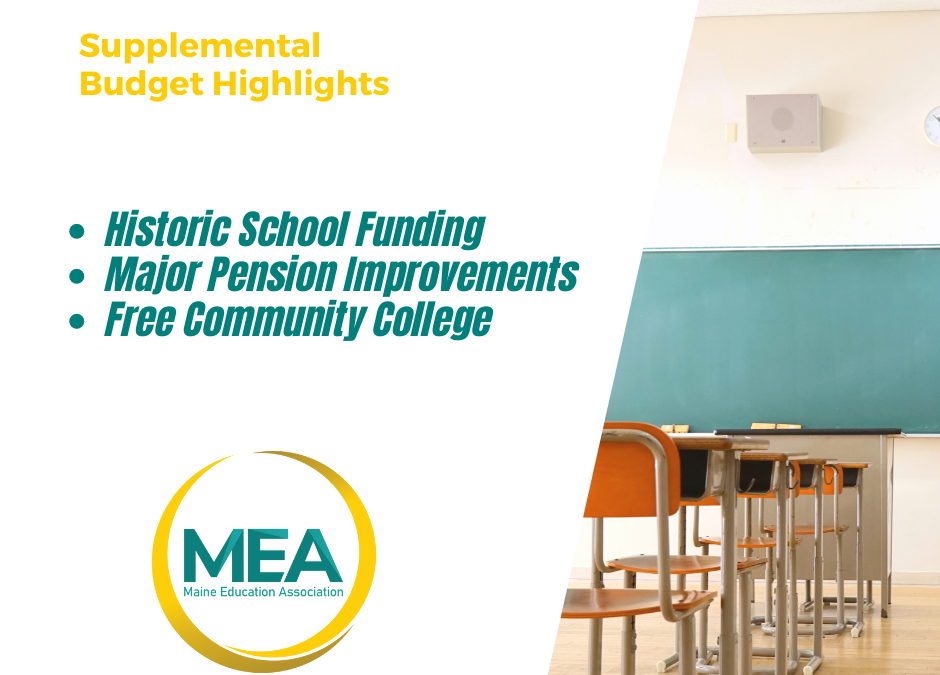Historic School Funding:
The supplemental budget maintains the state’s historic achievement in school funding by continuing to fund 55% of the cost of public education. This represents the second year after a nearly two-decade effort to achieve this goal and reflects the priority and confidence legislators and the Governor have placed in public schools. Under this supplemental budget, state funding for public schools will stand at more than $1.3 billion.
- The supplemental budget also prioritizes schools with the most need by increasing the multiplier for disadvantaged students in the school funding formula from .15 to .2.
- The budget proposal also decreases student/teacher ratios in the funding formula for the middle school level from 17/1 to 16/1, and continues a similar reduction for the elementary level grades from last year’s budget.
- In addition, the supplemental budget provides funding to continue the free meals for all students program, a huge victory for students.
Major Pension Improvements:
The supplemental budget responds to the concerns of current and future retired educators with significant improvements to our pensions. Legislators responded to the direct outreach of retired and current educators and made major strides to help more educators retire with the dignity they deserve.
- The supplemental budget lifts the base amount for our pension by 2.4%. This will help make sure benefits do not deflate for current retirees, or teachers and ed techs whenever they retire.
- The budget proposal increases the cumulative COLA for all current retirees from 3% to 4%. In addition, retirees who meet certain income thresholds will be eligible for $850 COVID-relief payments from the state.
- The supplemental budget increases the state income tax exemption on our pensions from the current exemption of $10,000 to $25,000 beginning in tax year 2022. Furthermore, the exemption is lifted to $30,000 in tax year 2023 and $35,000 in tax year 2024. For years, the MEA has argued to lift the state income taxes on our pensions, but the cost has often been pitted against the need to fund our schools appropriately. In this budget, the Legislature not only funded schools, but also provided retired educators with the tax relief they deserve.
There are many ways educators are disadvantaged in retirement, and our collective efforts to educate legislators has made an impact, but we must continue our efforts to bring fairness and support for retired educators.
Free Community College:
The budget proposal also provides $20 million in funding to the Maine Community College System to provide free community college for all graduates in the class of 2020, 2021, 2022 and 2023. The students must enroll full time.
Other highlights of the budget include:
- Student loan tax relief
- Increases in the property tax fairness credit and the earned income tax credit
- Creation of the Education Stabilization Fund so the state can maintain its funding for schools. Although the Legislature did not set aside funds immediately, the Fund will likely see some funding after the fiscal year.




